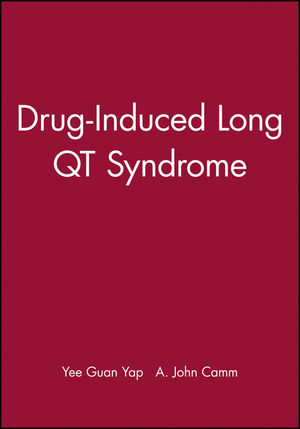Drug-Induced Long QT SyndromeISBN: 978-0-87993-468-2
Paperback
120 pages
September 2002, Wiley-Blackwell
 |
||||||
To most cardiologists, the long QT syndrome is a relatively rare
congenital and familial syndrome that affects children or young
adults. However, in addition to congenital LQTS there is a series
of acquired forms of the syndrome, usually resulting from exposure
to drugs that extend the duration the QT interval. This
prolongation may be the primary pharmacodynamic action of the drug,
however a plethora of other drugs, including some types of
antibiotic, antipsychotics, antidepressants, antimalarials and
antihistamines may provoke QT interval prolongation.
The aim of the Clinical Approaches to Tachyarryhthmias series is to update the physician, cardiologist, and all those responsible for the the care of patients with cardiac arrhythmias. In this volume, Dr. Yap and Dr. Camm expose the data implicating a large number of drugs as potential QT prolongators.



